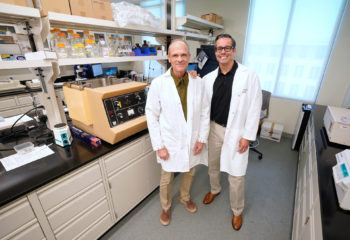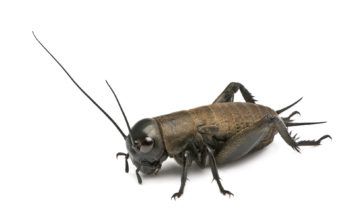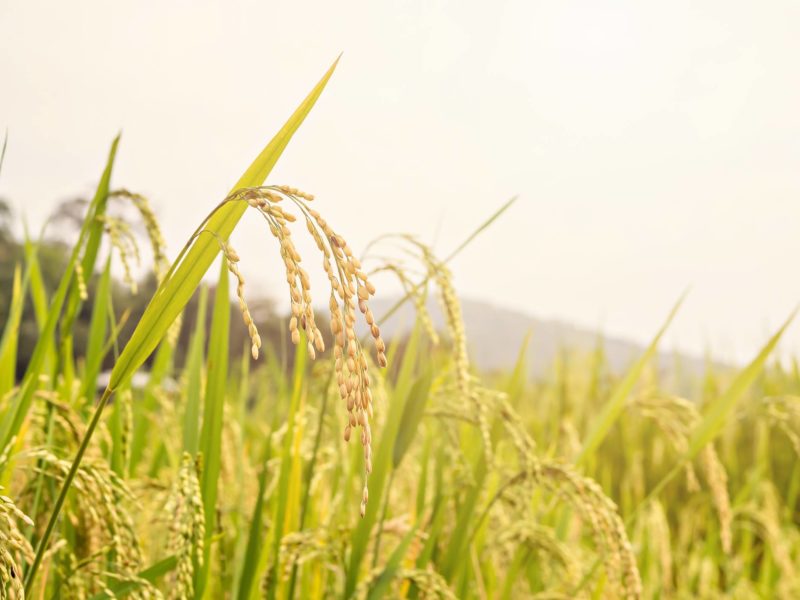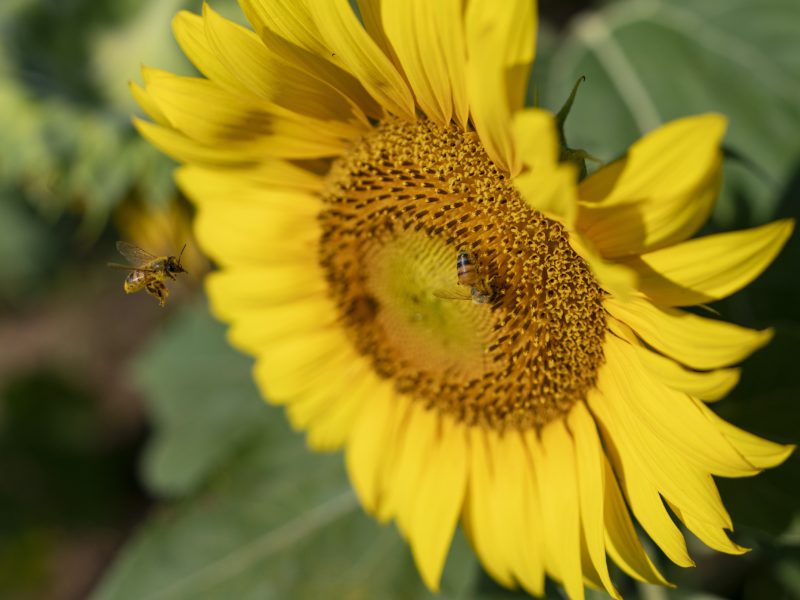Texas A&M To Lead Center For Environmental Sustainability Through Insect Farming

Texas A&M AgriLife Research scientists will explore insect farming for food and feed in response to climate change and shrinking food supplies for a growing global population.
A newly awarded $2.2 million grant from the National Science Foundation has established the Center for Environmental Sustainability through Insect Farming. The Texas A&M College of Agriculture and Life Sciences has been assigned as the lead site for the center, which will be a collaborative effort with Mississippi State University (MSU) and Indiana University-Purdue University, Indianapolis (IUPUI). Joining the universities will be 34 U.S. and global industrial partners including Mars Inc., Tyson Foods and insect farming pioneers such as Aspire Food Groups, Protix and Beta Hatch Inc.
The Role Of Insect Farming In Mitigating Climate Change
The Food and Agriculture Organization of the United Nations estimates traditional agriculture will fall about 40% short of the world’s food supply needs by 2050. Insect farming has been identified as a practical, economical, environmentally sound and sustainable method for producing high-value protein.

Jeff Tomberlin of the Department of Entomology and Del Gatlin of the Department of Ecology and Conservation Biology will lead the center on the Texas A&M campus.
Tomberlin said the center’s focus is to find solutions for a critical human problem – sustainable food production. The research will explore new avenues to produce food either for direct human consumption or as feed for livestock, poultry and aquaculture. Insects can also be used as food for pets.
“The difficult truth is we are maxing out our planet’s resources, and with land and water availability declining and climate variability increasing, agricultural production is facing serious threats,” he said. “Insect farming has the potential to relieve some of the pressure on our increasing agro-industrial systems across the globe.”
Strengthening The Food Supply Chain With Insects
Patrick J. Stover, vice chancellor of Texas A&M AgriLife, dean of the College of Agriculture and Life Sciences and director of Texas A&M AgriLife Research, said the center represents another opportunity to provide expertise and guidance for continued efforts toward sustainable agriculture.
“Strengthening our national and global food supply chains through environmentally responsible efficiencies in agriculture will be critical to our growing population’s future,” Stover said. “It is vitally important that we embrace the responsibility and opportunity of this moment in the evolution of food production and show how agriculture can be the solution to global challenges like climate change.”
Tomberlin said insect farming represents a burgeoning link in the global food supply chain, and has the potential to strengthen and compliment traditional protein production in an efficient and environmentally friendly way.
Incorporating insect protein into feed for fish, poultry and pork production will reduce agriculture’s environmental footprint, including land and water use, waste and pollution emissions, he said. Insects like crickets and mealworms have shown promise as a high-protein food option for people.
“Insect farming is a relatively new concept in the U.S., but the significance of its potential is widely recognized throughout the world,” Tomberlin said. “It is relevant to all livestock and agriculture production, and for Texas A&M to be the central site for this center is enormous for us as an institution, but also for the state.”
The Science Behind The Impact
Researchers will engage interdisciplinary expertise in microbiology, engineering, chemistry, food nutrition, physiology and biology with cutting edge technologies in labs and in the field to fill scientific and industrial gaps related to insect farming.
The interdisciplinary AgriLife Research collaborators include:
- Spencer Behmer, entomology and physiology professor in the Department of Entomology
- Aaron Tarone, entomology and life-history ecology in the Department of Entomology
- Juliana Rangel, director of the Texas A&M Honey Bee Lab and associate professor in the Department of Entomology
- Chris Bailey, professor of poultry nutrition in the Department of Poultry Science
- Elena Castell-Perez, product development, Department of Biological and Agricultural Engineering
The lead researchers at IUPUI are Christine Picard, an associate professor at the School of Science, and Yunlong Liu, a professor of medical and molecular genetics at the Indiana University School of Medicine. Heather R. Jordan, an associate professor in the Department of Biological Sciences, and Jonas King, an assistant professor in the Department of Biochemistry, Molecular Biology, Entomology and Plant Pathology, will lead the site at MSU.
AgriLife Research scientists will examine optimization in production and development of food as well as feed products for poultry, swine, aquaculture and pets. IUPUI and MSU will target genetics and quality assurances related to microbiology, respectively.
“It’s exciting that Texas A&M will act as the hub for this potentially revolutionary evolution in food and feed production,” Tomberlin said. “All the tenets for creating a circular economy that adds efficiency to agriculture, reduces pollution and waste, and improves producer and consumer choice are at the core of this center’s mission. We look forward to the opportunity for Texas A&M AgriLife to lead this effort directed at solving global challenges.”
This article by Adam Russell originally appeared on AgriLife Today.





